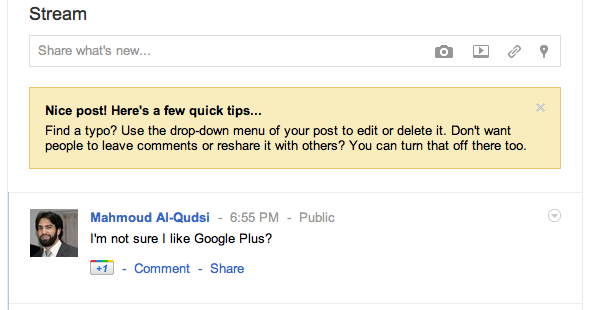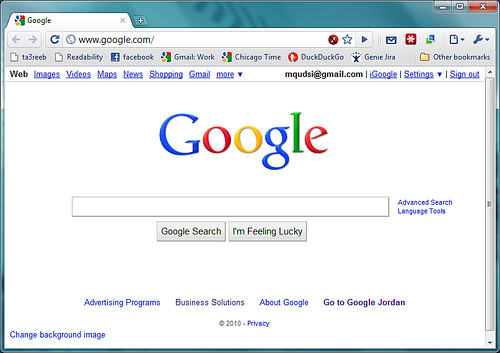 As most people are aware, Google search results are constantly changing and evolving. In the past couple of years, there has been a conscious and very deliberate shift – and not just by Google – to go from showing you what you want to see to showing you what they want you to see. Be it social network integrations (Google+, Facebook connections, twitter feeds, etc), local results, results based off of previous queries (at least this one is in an attempt to show you “relevant” information), and more. This is all old news and has been hashed to death (and to no avail).
As most people are aware, Google search results are constantly changing and evolving. In the past couple of years, there has been a conscious and very deliberate shift – and not just by Google – to go from showing you what you want to see to showing you what they want you to see. Be it social network integrations (Google+, Facebook connections, twitter feeds, etc), local results, results based off of previous queries (at least this one is in an attempt to show you “relevant” information), and more. This is all old news and has been hashed to death (and to no avail).
But in the past week or so, I’ve personally picked up on a rather annoying and dramatic uptick in incidences of Google’s penchant for – much like a three year old – understanding perfectly-well what it is that you want and pointedly doing anything but that.
I am speaking of course about the dreaded “Missing: important_search_term” that seems to pop up in just about every search result, with an uncanny ability of picking the most relevant keywords and conveniently “forgetting” to include them in your search. Initially, this search feature was reserved for only the most esoteric of search queries that typically turn up only a handful of results (under a few pages total) with all search terms included. In an attempt to be helpful, Google would include additional search results with some keywords removed, so as to remove the burden of extra constraints and widen the search parameters somewhat. Now? It seems like Google’s either come down with a rather bad case of human-robot transmitted alzheimer’s or else we’ve reached an all-new high when it comes to dumbing down the web (newspeak, anyone?).





